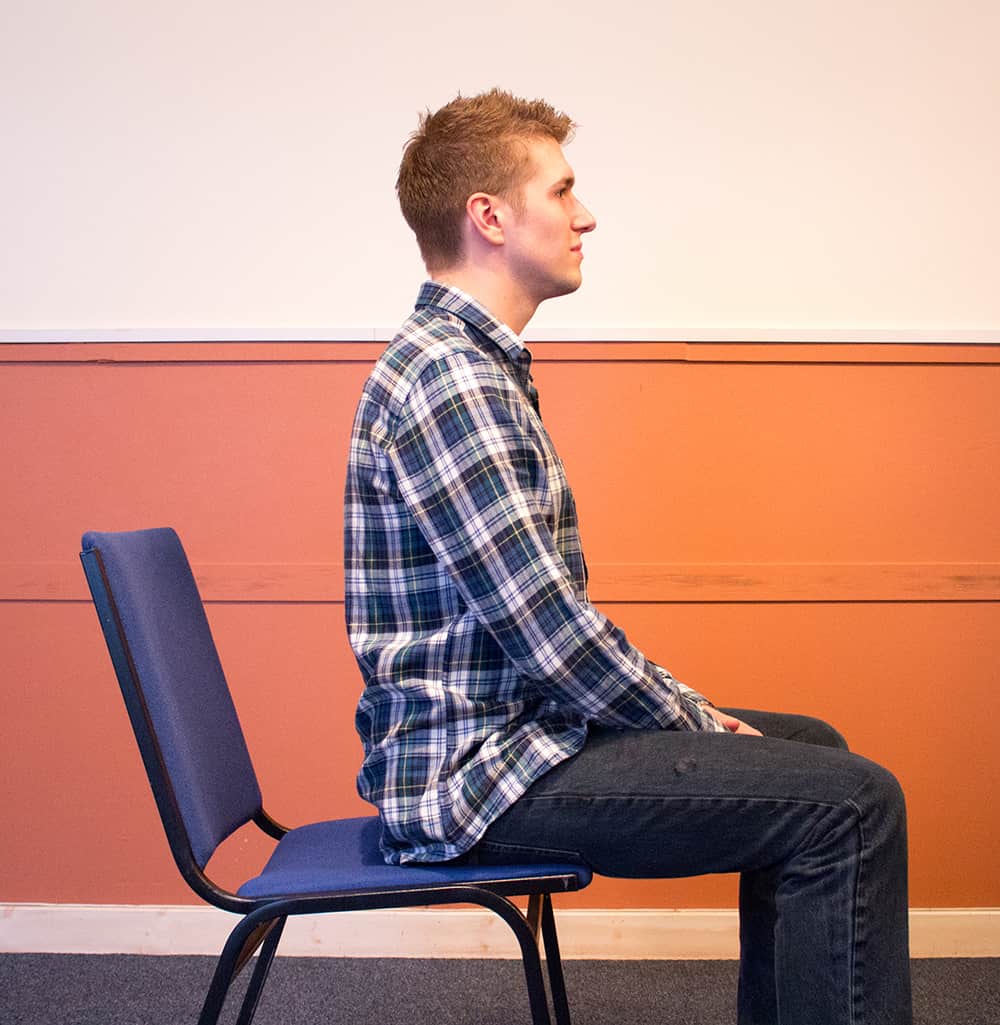Asthma is a condition in which your airways narrow and swell and produce extra mucus. This makes breathing difficult and triggers coughing, wheezing, and shortness of breath. Asthma can be triggered by many factors, including:
- Dust, pet dander, mold and pollen
- Air pollutants like smoke, sulfur dioxide, fumes from paint, cleaning products, gas stoves, etc.
- Tobacco smoke
- Activities which induce heavy breathing like heavy exercise, laughing, crying and yelling
- Stress and anxiety
Asthma attacks can occur when a person is exposed to these triggers. Symptoms of an attack include: severe wheezing when breathing in and out, coughing that doesn’t stop, rapid breathing, chest pressure and tightness, a pale, sweaty face, etc.
Medication and an inhaler provides relief when an asthma sufferer is exposed to triggers. But what can you do when you find yourself without both?
1. Sit upright.

Lying, bending down, or hunching restricts the air flow to your lungs, and will constrict breathing even further. To allow you to breathe easier, sit upright with your back straight. This will help your lungs to open wider to maximize the air you breathe.
2. Take deep breaths.

Slowing down your breathing by taking long, deep breaths will prevent hyperventilation and slow down your heart rate. Practice breathing in through your nose and breathing out through your mouth to loosen any tension in the chest.
3. Keep calm.

Emotional stress can worsen asthma attacks. To prevent aggravating the situation, try to meditate. Staying quiet also helps, as talking can tighten chest muscles and worsen the symptoms of the attack.
4. Stay away from triggers.

This may not be the easiest thing to do when you are already suffering from an asthma attack, but stepping away from what triggered it can help immensely—even if it’s your very own pet. Do this without over-exerting yourself and ask for help if you can’t stay away from it on your own. Choose a place with filtered, temperature-controlled air and shade as much as possible to recover.
5. Drink coffee.

It has been found that caffeine improves airway functions modestly for up to four hours in people with asthma. Caffeine is metabolized into theophylline which prevents relaxes the airways. To prevent developing hyperventilation and a rapid heart beat when in an asthma attack, stick to a cup or two (or even less if you can’t handle caffeine).
6. Eliminate dry air.

Taking a shower may not be the best idea when having an asthma attack, but just sitting in a washroom with a hot shower running can provide relief. A humidifier also works just as great, as it combats dry air which tightens the airways.
Even if your asthma attack has calmed down after using these methods, make sure to take your medication as soon as you have it with you.

